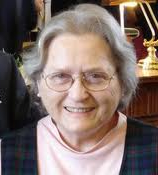 As a child growing up in Milwaukee, Wisconsin, I watched my mother go to work each day, dedicated to running our local women’s health clinic. A staunch defender of reproductive rights, she was armed with more than a team of medical experts, but also the kindness and wisdom that patients—many of them young women—relied on to prepare for the rest of their lives.
As a child growing up in Milwaukee, Wisconsin, I watched my mother go to work each day, dedicated to running our local women’s health clinic. A staunch defender of reproductive rights, she was armed with more than a team of medical experts, but also the kindness and wisdom that patients—many of them young women—relied on to prepare for the rest of their lives.
Today, a grown adult with my own children, I see that the world needs more people like my mother and her colleagues, more wise people to help families prepare for the future, and more experts to help them do it in good health.
Certainly, the demand exists. An estimated 222 million women in the developing world want to delay or avoid pregnancy but lack access to voluntary family planning. Forty percent of the 186 million pregnancies in developing countries each year are unintended. One-third of the illness among women ages 15-44 in developing countries is related to reproductive, sexual, and maternal health. Meanwhile, fulfilling the unmet need for voluntary family planning would reduce maternal mortality by 32 percent.
If we’re going to bring down these alarming numbers—numbers that represent mothers and daughters throughout the world—we need to increase access to voluntary family planning services. In this, we have an ally in the United Nations Population Fund (UNFPA).
This international development agency is working to deliver a world where every pregnancy is wanted, every childbirth is safe, and every young person’s potential is fulfilled. UNFPA mobilizes hundreds of staff in more than 150 countries to help governments develop programs that provide voluntary family planning and reproductive health services to women and girls.
Notably, these kinds of efforts are supported by 89 percent of Americans, who believe the U.S. should be supportive of UN programs that improve the health care, education, livelihood, and rights for women and girls. And this week we have an important opportunity to support this lifesaving work and open our minds to even more solutions.
Kathy Calvin, the United Nations Foundation’s CEO, is joining UNFPA in London, along with the Bill & Melinda Gates Foundation, the United Kingdom’s Department for International Development, and some 200 high-level representatives of governments, multilateral agencies and foundations from around the world for the first-of-its-kind London Summit on Family Planning. The Summit’s goal is to garner commitments from governments, the private sector and civil society to help provide an additional 120 million women and girls in the world’s poorest countries with access to voluntary contraceptive information, services, and supplies.
Every woman is entitled to plan for her family and her future, and on Wednesday the global community will stand up for that right in London. The summit’s goal is one that I believe would make mothers like mine proud and—more importantly—make women and girls everywhere healthy.

